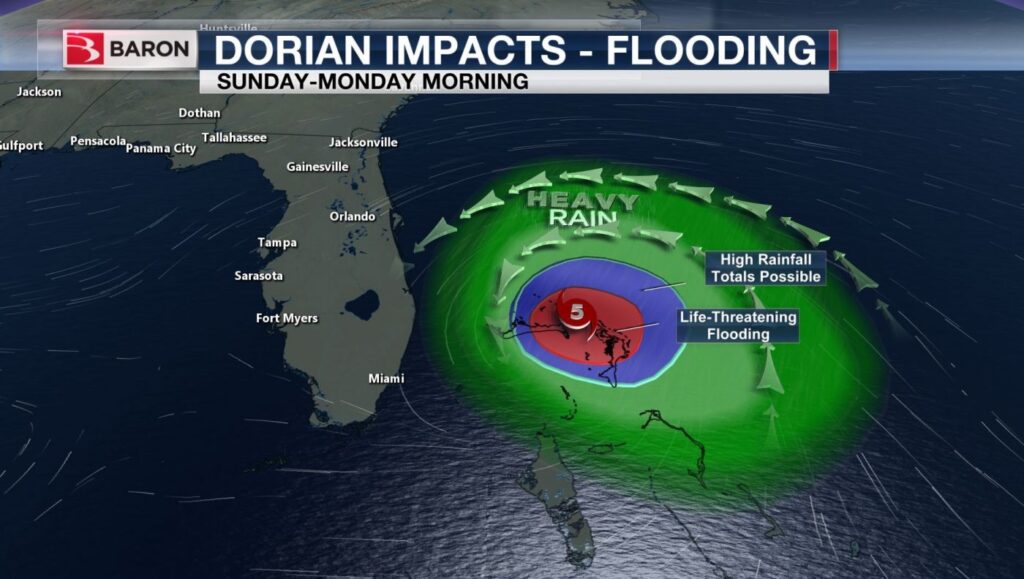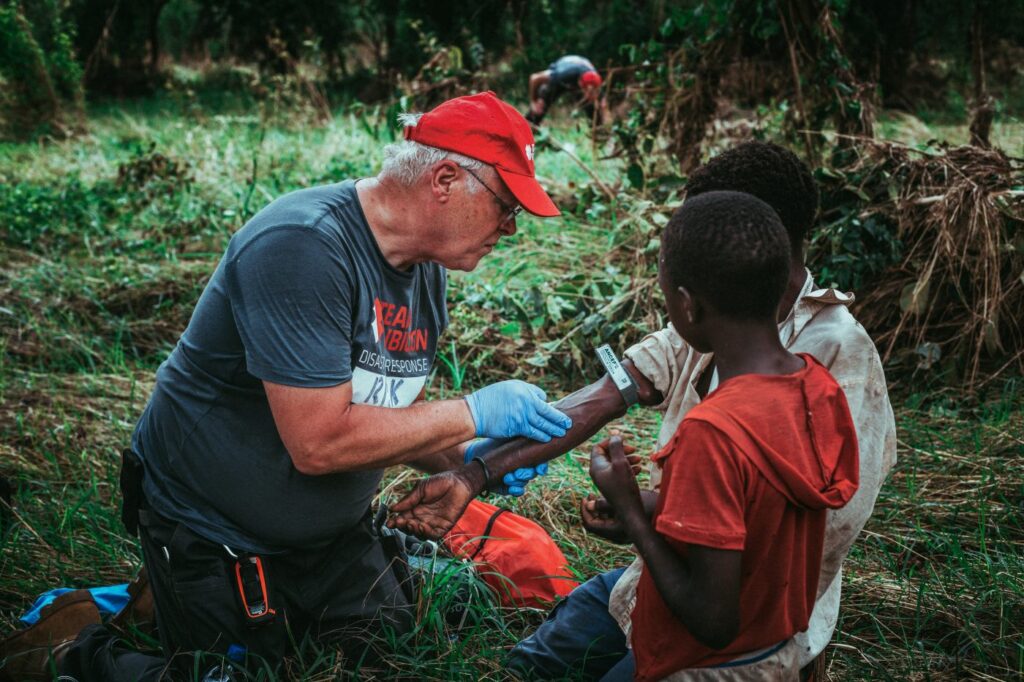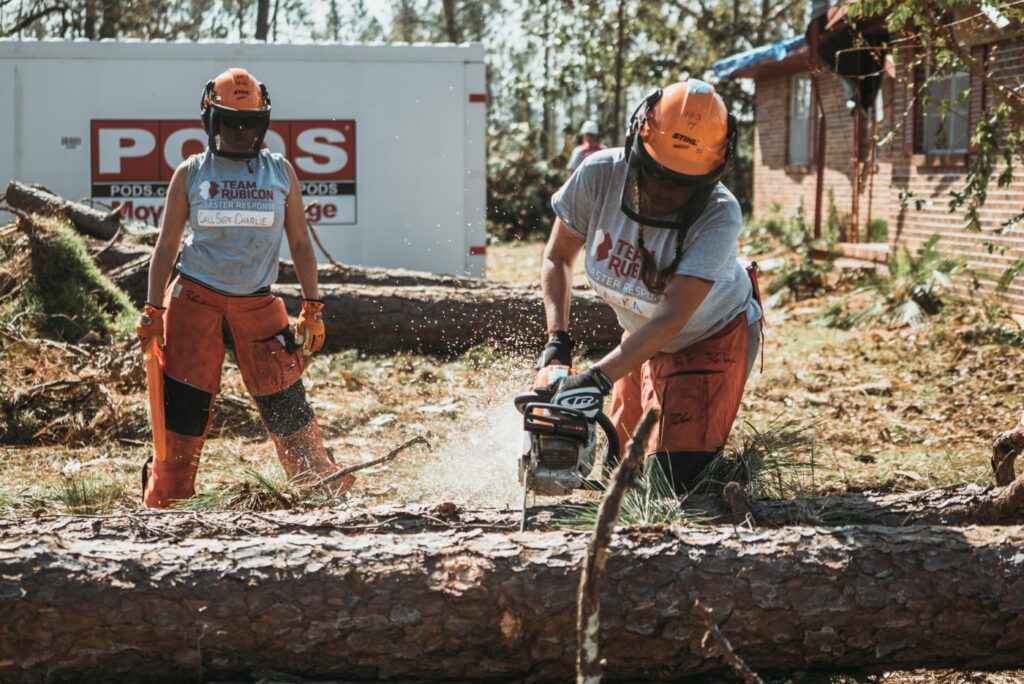The winds gusted at over 200 mph. The waters rushed up from the ocean, with storm tides hitting 25 ft in some areas on the island. As Dorian hovered over the Bahamas and Abacos, it became clear that this would be the most destructive storm in the islands in recent memory.

Dorian hovered over the Bahamas and Abacos, battering the islands with severe winds and storm surges.
Dorian made landfall on September 1, 2019 as a Category 5 hurricane.
Essential services on the islands have been disrupted and and access to care and shelter for many of the survivors is difficult to come by.
By September 3, Team Rubicon recon teams had deployed to the affected islands to work with local authorities and determine the needs of those affected.
Based on the devastation left by Hurricane Dorian, and unmet needs identified by local authorities in the Bahamas, Team Rubicon is leaning-in and will be launching a large-scale response operation.
While the majority of our international operations focus on medical care, our response in the Bahamas will have a larger scope; we will bring to bear any resource or capability we can in order to help the affected islands stabilize, respond, and begin to recover from Dorian.
Beginning September 5, 2019, we’ll begin deploying our WHO-verified Emergency Medical Team (EMT) Type 1 Mobile to Great Abaco Island in the Bahamas. Our EMT Type 1 Mobile will work to help stabilize the situation, provide medical care to survivors in hard-to-reach and remote areas, and helping to monitor for and prevent disease outbreaks.

Team Rubicon’s Type 1 EMT Mobile deployed to Mozambique following back-to-back cyclones earlier this year.
The EMT Type 1 Mobile deploys rapidly to disaster zones and provides triage, clinical care, and basic laboratory and pharmacy capabilities. The expert teams are completely self-sufficient and are equipped with temporary shelters, a robust medication supply, and best-in-class technological support. Most recently our medical teams ran extensive operations in Mozambique following Cyclones Idai and Kenneth.

As the needs of survivors shift after the initial response effort, Team Rubicon will continue to lean in and provide services to the best of our ability.
And as Dorian makes its way up the East Coast and begins affecting the Carolinas, we continue to have team staged up and down the coast, prepared to deploy to communities affected.



